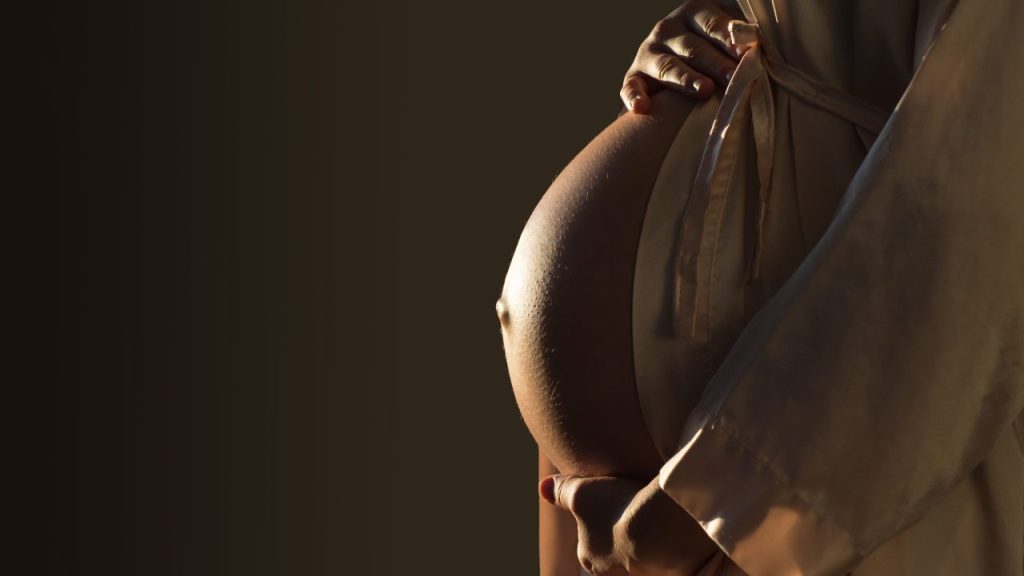Push presents, with their binary and biological slant, can be unnecessarily offensive
Given to a birthing parent for enduring pregnancy and childbirth, push presents can cause unintended hurt for some and raise questions about rewarding a natural process.
Push presents have existed for centuries, but the debate around them is mostly a 21st-century phenomenon.
Given to birthing parents as a “thank you” and “congratulations” for all they endured while bringing a new life into the world, a “push present” is usually from a partner, but can also come from family. The present can be given before or after the birth, sometimes even in the delivery room.
“It is a token of appreciation for delivering the baby as well as carrying the baby or babies through pregnancy,” certified birth and postpartum doula Kristin Revere told Yahoo Life.

According to Healthline, a push present typically costs between $25 and $300, but Massachusetts-based etiquette expert Jodi RR Smith advises people to consider their finances before purchasing. “With a new baby, no one should go into debt to give a gift,” she said.
While some parents look forward to receiving a push present, which continues to grow in popularity, more people are beginning to view the name as discriminatory and controversial for a number of reasons. In the 21st century, families welcome children in a number of ways, and the phrase carries binary baggage.
The term inherently excludes people who have cesarean sections and non-birthing parents who adopt or choose surrogacy. According to Utopia, even alternative names such as “new mama gifts” have the potential to offend nonbinary people and others who give birth, such as transgender men who carry children. There are alternate terms — such as “baby baubles” or “birthing gifts” — but “push present” is the most popular, though it can cause pain to many people, Utopia reported. Additionally, the binary, cisgender nomenclature is intrinsically sexist, given that the name means only a person born female would receive a gift.
For others, push presents are unnecessary. One blogger opined, “Giving birth is a natural thing, women have been doing it for thousands of years. Childbirth makes a woman special, but does a woman need to be rewarded with a materialistic gift for successfully giving birth?…It’s incredibly exciting and should be celebrated, but maybe not in the way that these ‘push gifts’ are sometimes intended. Did you not expect us to be delivering this child after all these months of being pregnant?”
That blogger, offended by the celebrities expressing their desire for pricey gifts such as Kim Kardashian’s $1 million choker, because nature took its course, clearly overlooked the disproportionately high rate of maternal mortality for Black birthing parents. But her complaint raises another potentially harmful consequence of prematurely giving a push present and tragically the infant or birthing parent does not survive the process.
Recommended Stories
Despite the growing number of push-present detractors, Brookwood Women’s Medical Center asserts that such gifts are essential for several reasons.
The primary one is that the nonbirthing parent likely may never know what it’s like to give birth and might want to express gratitude for the less physically taxing role. For centuries, women have maintained that men will never understand the intense pain associated with giving birth. For many, a push present serves as a recognition of pregnancy’s mental, emotional and physical strain. It’s an effort those who don’t carry children can never understand, regardless of how active they are during the journey to delivery. Secondly, after the baby’s delivery, life often revolves around the child — and the birthing parent’s work deserves recognition.
People who are pro-push present contend gifts unrelated to the baby can make the birth giver feel loved, cared for and appreciated during the hectic newborn phase, as many parents forget or postpone self-care.
Pregnancy, labor and delivery are not easy tasks — but the most challenging aspects of parenthood are just beginning. That’s another reason Brookwood listed in favor of push presents. The most difficult phase of parenthood is the early years, especially for the person who carries the child, as hormonal fluctuations, insomnia, and postpartum depression can add to the exhaustion of caring for a newborn, infant or toddler. A push present to say “I love and appreciate you” during this intensely emotional and draining period can make a significant difference.
Never miss a beat: Get our daily stories straight to your inbox with theGrio’s newsletter.
More About:Women

















